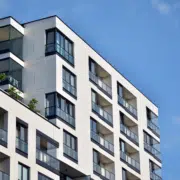Renting a house in the Netherlands: defects
Suppose you have come to the Netherlands and you have found a great place that you start renting. But then issues arise: a leakage in the kitchen, the heating does not function properly and you have unwanted small furry guests gnawing on the beams in the attic. Who is to blame, or better yet: who is legally responsible?
This post was reviewed and updated on 28 September 2020
Landlord: large defects
The main rule is that, by law, you may expect to fully enjoy your rented property. If issues occur that impend this legal right, your landlord/lady will have to fix them. The landlord is in charge of all large defects such as maintenance and leakage.
It is important for you to carefully inspect your ‘home to be’ before or when you move in, preferably together with your landlord. This way there can be no misunderstandings over the state of property. You can point out the defects that need to be fixed. Of course the landlord is accountable for defects he knew about but ‘forgot’ to tell you. (Advice for the landlords among you: make sure to keep up with maintenance and correct problems quickly. It will save you money and grief in the long run.)
Tenants: small defects
For tenants: once you have moved in, you yourself will be financially responsible for small repairs and such, as occur over the course of daily life. These include re-painting walls, replacing lights bulbs and door knobs etc. For a full list of this type of defects, please see (in Dutch) the Minor Repairs (Tenant’s Liability) Decree.
Damages that you are not responsible for, can usually be claimed under your household insurance policy.
Should you not have household insurance: be prepared for the fact that your landlord is only accountable if he can be blamed! This might be the case if he was not up to date with the maintenance, had done repairs incorrectly or did not respond to your complaint resulting in higher damages then necessary.
To both landlords and contractors: beware that your tenants might also claim ‘damages for consequential loss’. Case-law has shown that if accidents happen due to a property defect and hospital bills have to be paid, the numbers go up quickly.
So what to do in case of a defect?
When you are renting property and you notice a defect you have to inform the landlord. If he is not willing to take care of the repairs himself, there are four possible routes to follow:
A. You take care of the repairs and send the receipt to the landlord reclaiming the costs;
B. You take care of the repairs and deduct the costs from your monthly rent. (Do make sure to inform your landlord about this and send him the receipt of the repair costs.)
C. You take care of the repairs and request deduction of rent from the moment he was informed about the defect until the moment it was repaired.
D. Take it to court and sum the landlord to repair the damages and/or to deduct the repair costs from your rent from the moment he was informed about the defect until the moment it was repaired.
E. Start a so-called ‘defect procedure’ with the rent assessment committee.
Conclusion
Disputes about defects and deficiencies are never straightforward. They depend on the circumstances at hand. Thus, exceptions might apply.
If you are not able to settle the differences with the other party to your own satisfaction, please contact us.
Marie-Christine studied law at the University of Leiden and has an extensive experience in real estate law. She joined GMW lawyers in 2012, after she and her family returned from a four year stay in the Sultanate of Oman. Because of her experience abroad, she is well aware of the problems that expats can encounter while living outside their homeland.
Marie-Christine is specialised in tenancy law and is a member of the Specialist Association of Tenancy Law Lawyers. She advises on complicated matters of tenancy law regarding both residential and business accommodation. Her clients include housing corporations, local authorities, food service industries, enterprises of all sizes and national and private individuals from the international community. She advises and litigates on issues such as commencement and expiration of the lease, general terms and conditions, defects on delivery, concurrence of tenancy regimes, joint tenancy, hemp plantations, disturbances by neighbours, etc. Marie-Christine gives lectures on tenancy law to several real estate companies.
In addition to tenancy law, Marie-Christine also has broad experience in the purchase and sale of real estate, apartment rights, construction law, administrative law, law of obligations and debt-collection. She is well-known for her analytical skills combined with a vigorous approach.










